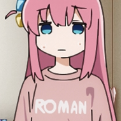-
Posts
1381 -
Joined
-
Last visited
-
Days Won
4
Charles Bolivar last won the day on December 22 2022
Charles Bolivar had the most liked content!
Profile Information
-
Gender
Not Telling
-

-
Leader Name
Charles Bolivar
-
Nation Name
Gran Columbia
-
Nation ID
170135
-
Alliance Name
Guardian
Recent Profile Visitors
Charles Bolivar's Achievements

Exalted Member (7/8)
1.4k
Reputation
-
This post will 100% be used as a screenshot for the next war's CB.
-

Syndicate, INC Opens Business Office in Uritithu
Charles Bolivar replied to Gaius Julius Caesar's topic in Alliance Affairs
Typically I do enjoy a good big Mac, but lately I have discovered that the usually pleasant sauce tends to be a little bit on the salty side. I guess it's time to return to the colonel 🤷♂️ -

Syndicate, INC Opens Business Office in Uritithu
Charles Bolivar replied to Gaius Julius Caesar's topic in Alliance Affairs
Oh. Apologies. I was under the mistaken impression that tS's FA dept had imploded from a lack of ability and that was the reason they had kept changing allies and spheres over the last couple of years. Now I see my mistake. What I originally mistook for incompetence is actually a burning desire on tS's behalf to courageously bring balance to this game by constantly changing treaties and spheres so as to prevent any one alliance from assuming a position of preeminent dominance. I unreservedly apologise for my mistaken presumption. -

Syndicate, INC Opens Business Office in Uritithu
Charles Bolivar replied to Gaius Julius Caesar's topic in Alliance Affairs
The real question to ponder upon is if tS can hold onto this new treaty for longer than a single war before it goes pear shaped like much of their recent treaty partners over the past couple years.- 73 replies
-
- 14
-

-

-

-
@Roberts Eerily similar to some points I was making in a private AA membership chat a week or so back. But yeah, I'm in total agreeance with you on this one. The traditional alliance leadership model is one we largely inherited from CN/NS, but with one minor correction. NPO back in 2005/6 operated with two councils comprised of 4 elected council members each. If I remember correctly there was an alliance council (Econ and IA), alongside a war council (milcom and FA). This was the model they used until I think it was 2007 in which Moo reformed it into the Imperial Officer system which resembles the more traditional exec model but even then with caveats. The IOs did have their own portfolios, but they also had the authority to be involved across multiple portfolios and depts as they weren't entirely tied to their own. It was the deputies of the IOs who had greater resemblance to our current version of dept head in being responsible for a large portion of the internal organisational aspects of dept management along with a minor focus on matters outside of the AA itself. So basically the model used by both incarnations of NPO at that time did differ in a significant way than that used here in this game. Truth be told I believe the alliance models used here are quite simplistic in general compared to CN ones. The common perspective is that because alliances here are much smaller so there isn't a need for larger and more comprehensive govs. I think that point has some merit, but I don't believe it totally engages with that issue at hand on a structural level. As I said to shiho when discussing this, 'does rose have a big gov because it has a a big membership, or does it have a big membership because it has a big gov?' Usually appointments to gov in this game are based on two factors, merit and a gov vacancy. This seems fine until you consider the issue that arises when you have two equally talented potential FA heads but only one vacancy. This usually results in one being selected and the other equally talented individual hopefully hanging around as a deputy, but I also tend to suspect that this situation leads to many of the splinters and micros in this game we see formed by ambitious potential alliance leaders forced to do so due to a lack of gov spots. In comparison, if we utilised a model purely on merit, so two equally talented FA orientated individuals would as dual heads, then we would avoid that issue entirely. Whilst people may say that smaller govs are more ideal and responsive, I tend to believe that perspective to be inherently flawed. I've seen alliances of 1500 members with govs of 20 plus members plus react and make decisions quicker than smaller AAs with smaller govs. What matters in alliance responsiveness and decision-making capability is the actual standard of ability present in associated gov members, so if we are using a limited model which incentivises talented and ambitious members to go elsewhere then you can see the issue which begins to develop overtime. Plus having a larger gov in general really allows for newer players to become involved and learn the necessary knowledge which is also a reason people utilise for why smaller govs are more ideal. I think this perspective, namely that it's difficult for new players to learn everything needed, isn't a legitimate reason for keeping small govs at all. If anything it's a reason to expand govs so as to actively educate up and coming talent. Personally, I think the smaller gov perspective isn't actually based on smaller memberships at all. I think it's more so a result of current nation simulators existing in a time of discord which allows for more centralised and instant/realtime communication across multiple wires devices. This being in comparison to earlier nation sims forced to rely on forums and IRC/Skype which generally needed a PC to utilise. A good gov needed a large amount of gov members online at any given time, and forums itself usually led to greater alliance engagement at a membership level because forum topics would be active convos spread out over a period of days and weeks. And that's the key benefit, alliance engagement at a membership level. It's the hallmark of a good alliance and the only thing that really matters in measuring an alliance's capability. So to wrap up this phone written wot, I think alliance leaders advocating a smaller gov are looking at it from the wrong direction. I think we have smaller memberships because we have smaller govs, and that this small gov is the result of the changed way we communicate.
-

Resource Adjustments Execute Order 66
Charles Bolivar replied to Prefontaine's topic in Game Discussion
This. -

Resource Adjustments Execute Order 66
Charles Bolivar replied to Prefontaine's topic in Game Discussion
A few of us other day were discussing alliance projects which require an absurd amount of resources to purchase whilst offering significant benefits as perhaps a way to act as a resource sink for the game's economy 🤷♂️ -
Oh cmon..you can do better than that chump.
-
Eclipsed.
-
So say the defeated. Always and every time.
-
You may call it a bandwagon. The rest of us call it karma. It would be highly ironic if Pascal takes this to ron and boasts about it after his constant ranting in regards to guardian's stats during the last war.
-
Charles Bolivar changed their profile photo
-
The presence of two poles does not mean that alliances are unable to cross from one hemisphere to another though? We had plenty of that occurring in the past too? BK being a rather prominent example A bipolar world doesn't automatically imply a non-changing world. It's simply a term used to describe a set of relations which exist within the game's larger meta as it exists at any given point in time. Alliances will change in their goals, interests and alignments much as they always have done.
-
I think you are confusing NPO's motivations for forming a hegemony with what they did when they finally achieved (albeit briefly) that hegemon status before it all imploded. I'm the last person to be an NPO apologist since I despised them as much as the next person, but I think we can all generally agree that the only way to achieve real security is via being able to project some form of indirect dominance upon the game from a position of strength. One is never totally secure as long as a serious rival is present. Once you take into account NPO's earlier history of defeat after defeat, their economic and tiering models and so on, then NPO's motivations for attempting some form of hegemony really aren't all that surprising. Now, what they did to maintain that hegemony is a whole other different story which can't be condoned. Not all hegemons are the same after all, and I don't recall tS, TKR, rose or any other current and/or previous hegemons employing the extreme methods utilised by NPO. I also disagree with your definition of what a hegemony actually is. There have been many would be and actual hegemons labelled as such in this game's history. They have all fallen one after the other. No one is untouchable. This game's own history actually indicates as much and if the current meta isn't indicative of former hegemons being humbled then I don't know what is. We could argue over who was and wasn't a hegemon, but considering the term gets thrown around rather loosely I think such a venture might be ultimately futile. And that's precisely what minispheres was, an idyllic narrative divorced from the game's own material reality. Particularly in regards to the upper tier dynamics which render the notion of minispheres particularly problematic and hard to achieve.
-

Chicken or the Egg? New Alliances or Old Problems?
Charles Bolivar replied to Raphael's topic in Orbis Central
I'm not so sure tbh. I admit there would be a few, but no more higher a percentage than compared to regular alliances I suspect. Considering the other game, which has a lengthy history of functioning democratic alliances, democracy if implemented correctly is perfectly viable. In a lot of ways, most democratic alliances end up resembling meritocratic AAs overtime anyway. Personally, I'd be interested in seeing a more radically inclined direct/consultative democracy if only to see how it would operate. Indeed, as a few might know, I've contemplated creating such an alliance in the past 🤷♂️ -

Chicken or the Egg? New Alliances or Old Problems?
Charles Bolivar replied to Raphael's topic in Orbis Central
There are plenty charismatic and arrogant idiots in charge of more than a few alliances already, and that'a without democracy.









